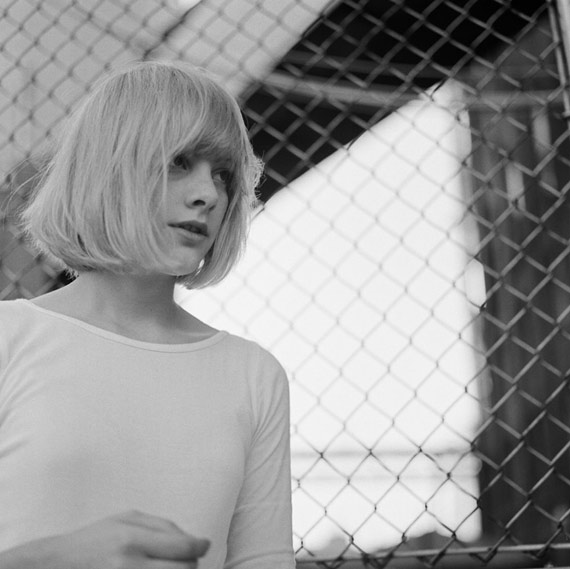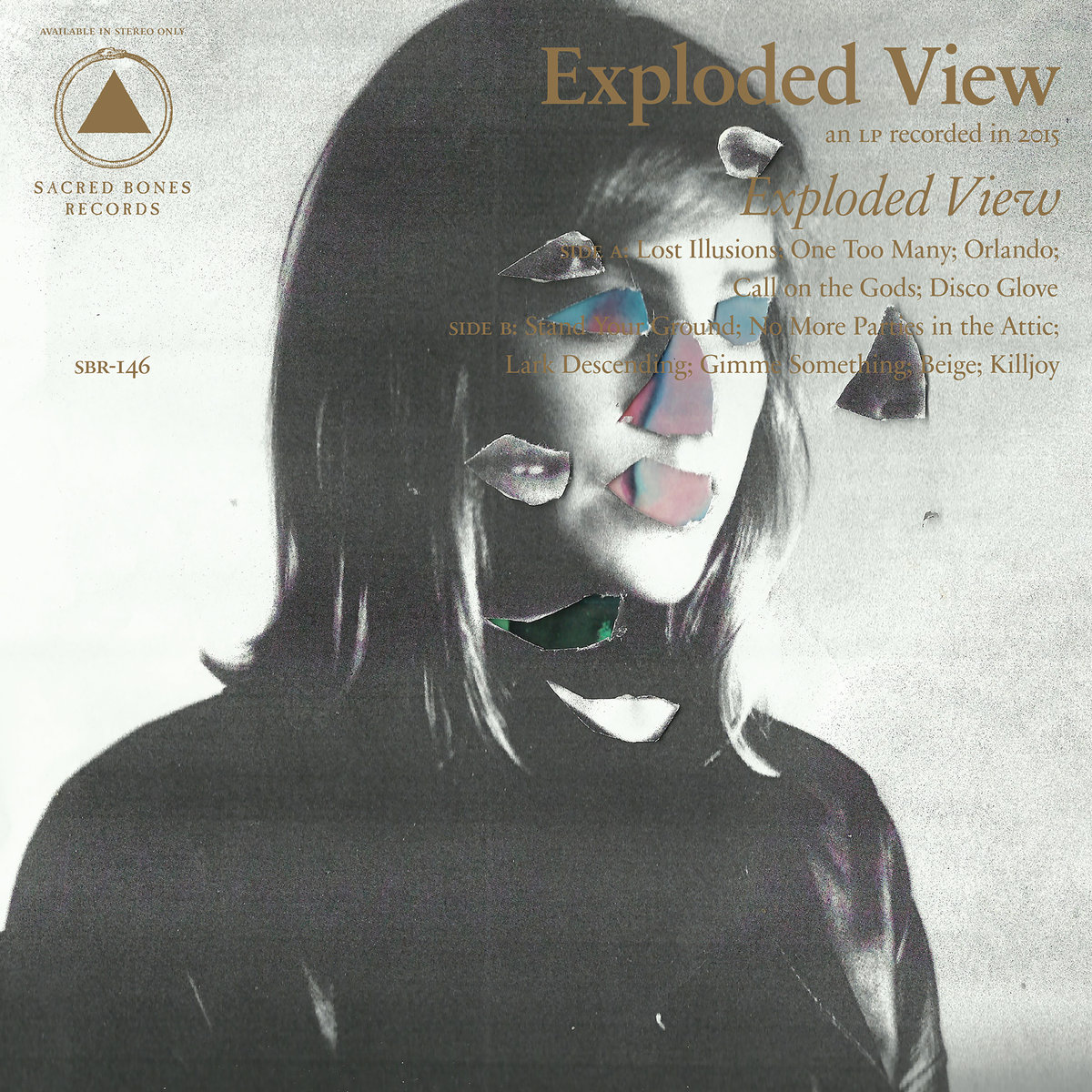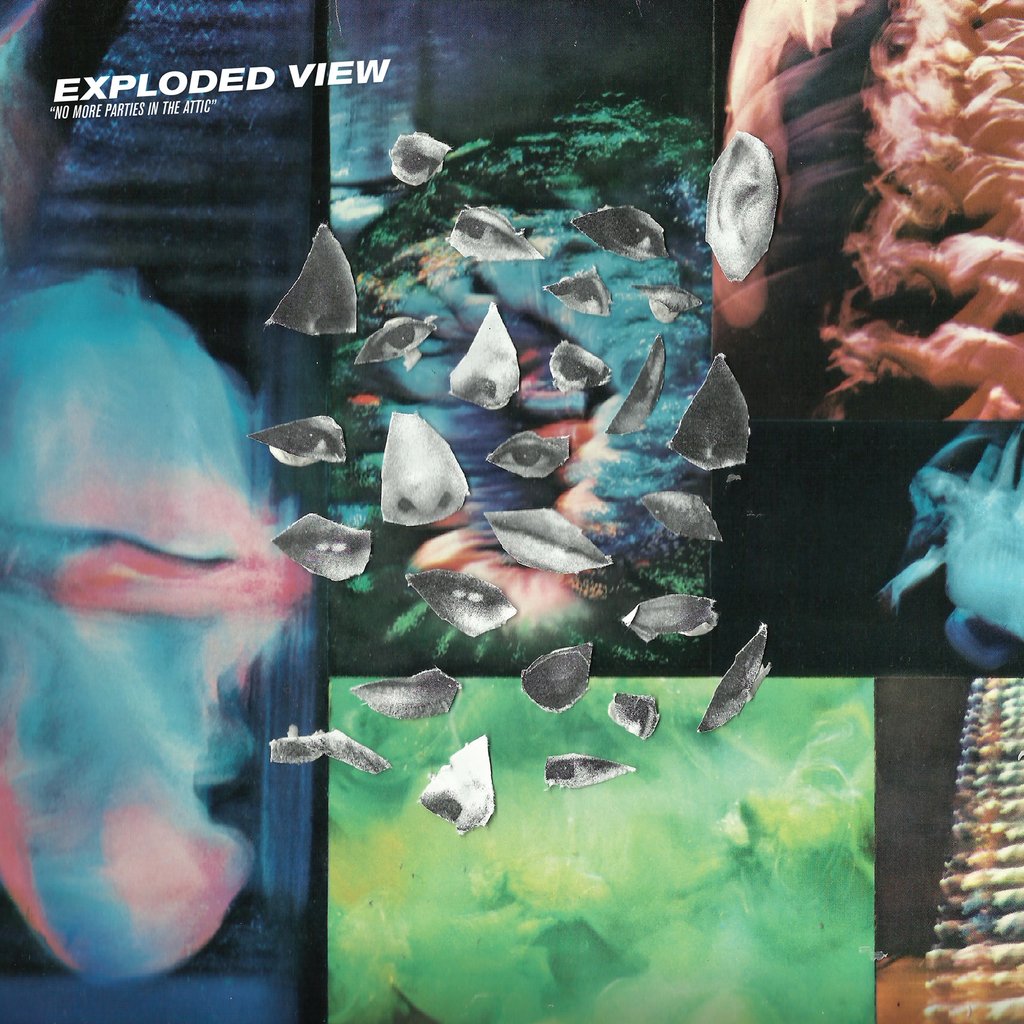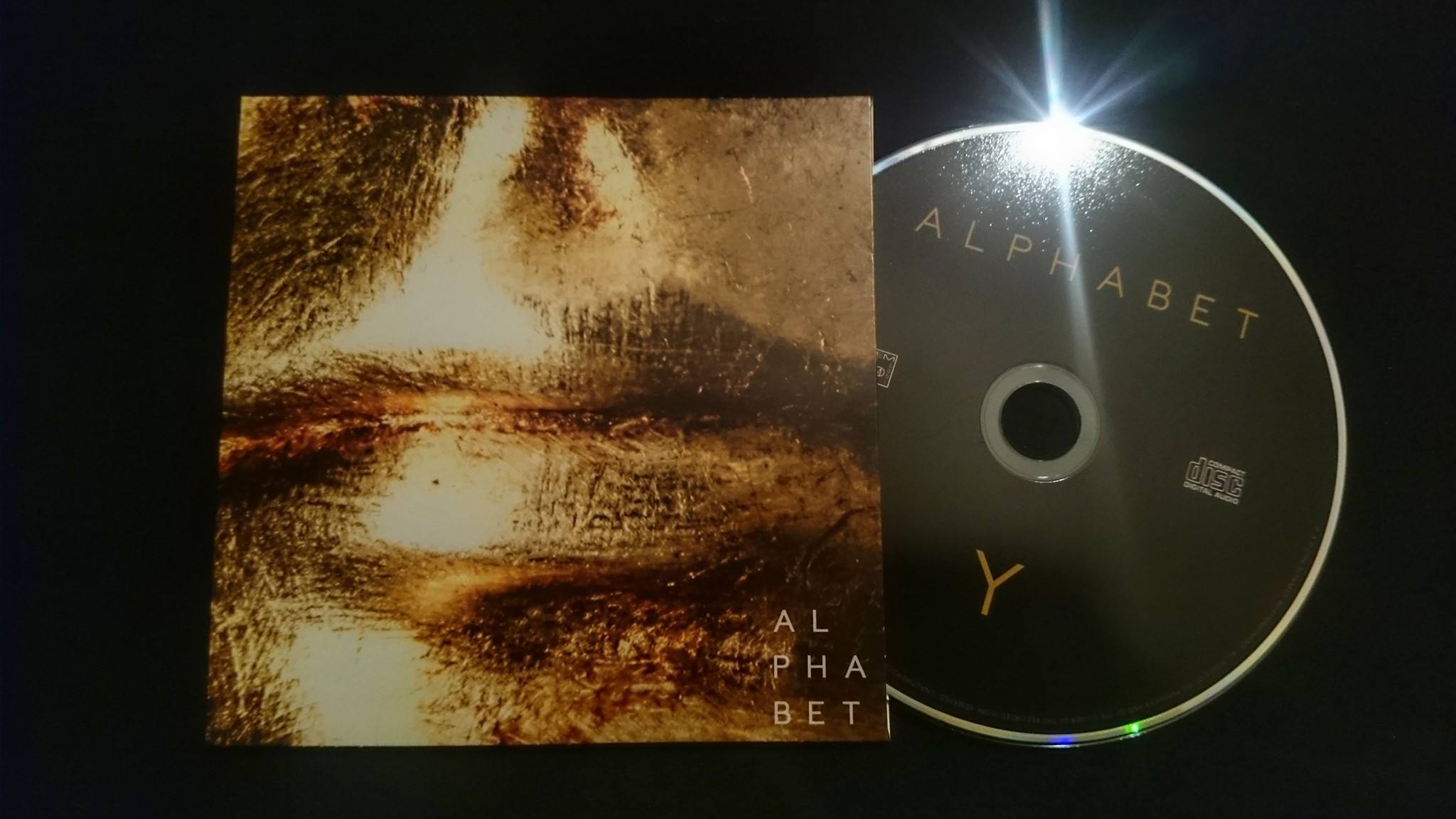Annika Henderson, a.k.a. Anika, is a German-British singer, musician and songwriter. She is (Anti-)DJ in her spare time as well. She made her first record Anika with Geoff Barrow (from Portishead) and Beak in 2010. Since then, she has worked with Invada, Stones Throw and lately Sacred Bones, who released in August 2016 the first record of the new band Exploded View (Annika Henderson, Martin Thulin, Hugo Quezada and Hector Melgarejo). Thus, she has experienced different music scenes in her career, such as Bristol, Berlin and Mexico and has collaborated with diverse artists, like Tyler Pope (from LCD Soundsystem) and Yann Tiersen. With her intuitive and experimental sense of creation, Annika Henderson is one of these genuine and demanding artists whose musical path and vision are most interesting. She accepted to share it with Manifesto XXI in Berlin.
Manifesto XXI – To begin, could you tell us how you became a musician? Has music always been important in your life?
Anika : I have always played the music at home. I have grown up with all sorts of music from my family. I played the piano when I was younger, my brother was a drum’n bass DJ, my sister was into jungle and was a house DJ, my mother loved Janis Joplin, and my father introduced me to music through like Jools Holland. Music has always been important, but I didn’t want to become a musician. I became a professional musician by accident. I graduated in 2008. I spent some time in America, England and seeing the recession, all of this stuff that was happening, I felt music was a good way to engage with the world and politics.
You are both German and English. Do you think those two cultural backgrounds have impacted your vision of culture? Maybe your influences?
Yes, definitely, in their own way. England did because it is where I grew up and there was so much music around. I started going out to the garage and drum’n bass parties in London when I was thirteen. I remember seeing Amy Winehouse playing with her local band in a small club. I have also been growing up with the MC, the propers of grime (when it was grime still). But in the German side, it was more indie rock’n’roll bands on every side. I used to help out backstage in a music festival in Germany when I was thirteen as well. I met some great people (Patti Smith for example), it was very inspirational. I never wanted to be a musician then but as a documentary journey, I found it fascinating. I love the writers from the sixties, these crazy characters who wrote each of their songs! Dusty Springfield is my favorite because she seemed to be in control. She was very clever, playing like a sweet innocent girl, but also was a complete manager.
That is funny because in your first album you cover songs from the sixties in a very eighties style, something that comes from those days, like post-punk…
The strange thing is, I think, born in the 80’s, I directly rejected all eighties music. I didn’t have any knowledge in post-punk at all when we made the record. It was only after that people in the interviews got referencing with it. It was so strange! It was only after the record that I started to collect vinyls from that year. It is funny because I know a lot of people in this original scene now, I really like the music and what they do.
How could we define your music style without labelling genres on it?
It depends on which record and the people I have been working with (in Mexico, in Bristol and in Berlin), but I suppose I am always influenced by a bass in some way. There is something experimental with the bass process. I think there is eighties influence, especially in the Exploded View record. I know Martin (Martin Thulin, guitarist and drummer of Exploded View) is a huge fan of this music. Now I am also influenced by it, because I know it. But still we did not make this kind of record on purpose. We were just playing music. And I hope I cannot quite define my style because if I can, then it means it has been done already.

What is your opinion on the art scene you work in on a professional level?
It is such a very rich place! It is lot of inspirational creative people that I really admire and respect, but like with any scene and industrial business, you just have to choose carefully who you work with and surround yourself with them.
You have had a lot of collaborative projects, how did it work with the other artists?
It is more about just finding people that are around the same vision of the world. Somehow I always need a connection with the bassist, because I need this grounding. And then someone that does not mind, that does not talk about it too much. That is why it was great to work with my original collaborators (Geoff and the Beak guys), because it was a complete accident! We just went in the studio, recorded, and not discussed then. They just said: “Do you want a cup of tea?”. I did not really know we were going to release and it was just half way through that I realized who they were!
You did not feel like you had to talk about it.
Yes, I think when you are trying to create something, you just have to do it without thinking whether it is good or whatever. That is the way I like to work. You just do it and then you move on. But it depends on how and why you create. I guess that is affective with collaborators a lot. It has been a lot of potential collaborators in the last six years, a lot of musicians I really admired as a child, but somehow the collaborations did not work. I have so much material I do not want to release, because sometimes it is really a personal thing.

How did you choose your labels?
Well, because I really like what they do. When we decided to put the first record out, Geoff said Invada would put it out in Europe, but we needed an American label. He said there is interest from a few labels he named, but when he said Stones Throw, I said: “We go with Stones Throw!”. Because I have grown up with it, my brother was a fan and educated me on Stones Throw. I love what they do, it is always interesting, it is a collection of weirdos. They accepted the record and I wanted to go and meet them. So I went to Los Angeles and met Peanut Butter Wolf. He was really cool because he was really into music and has this complete freedom. He is not scared to do things differently. Even in the label, some hated the record but that was kind of interesting too!
And with the new record with Sacred Bones I met them in South by Southwest in 2011. I played the DJ at their party. And I thought for this record it would be perfect. A lot of labels were interested but they straight away wanted to sign up for the rights and all the stuff… And I really like Sacred Bones. They just follow their heart and I think that is important. Martin and the band were saying: “It is difficult with you because you always go for the heart person, not for the head”. But it is a combination. You still need a business person, but I think first you need to follow someone for the right reason.
Do you think your style evolved between your solo projects and this project with Exploded View? Do you see it as a continuation of your personal musical exploration?
Yes, definitely. I still feel, that with this Exploded View project, we do not know where we want to go next. It is only the first record! But I still really want to make another solo record. Maybe it will become the most boring and the least interesting because it will be the one I have been so worried about…
Do you have current projects?
I am actually working on another collaboration in Berlin but that sounds very weird and I quite like that. I am also working on my own stuff, we’ll see!
I am looking forward to it!
It is not intended to be released. It is more like becoming a personal track.
You are a musician and a DJ as well. It is two different ways of playing music. How do you combine it?
Well, with DJing I really do that for fun, really. And also to stay in touch with music and stay in contact with the public. It is interesting, sometimes it is just horrible and people laugh! But I quite like being the anti-DJ.
Don’t you consider it as a creation, insofar as you compose and perform a set?
I think it can be. DJs also have to be very talented. I don’t think I am a talented DJ, but at least I like to create the strip that take people to a very strange place. Most DJs want to take them to a high place, but maybe my set is kind of a bit strange. Often I play music that comes from London and people just don’t get it.

How did you meet the other members of Exploded View?
A friend of mine introduced me to them and they were my band when I played in Nrmal Festival in Mexico. I think it was in 2014. We were often waiting for the drummer to arrive, he would be like eight hours late, so we just started to play songs (that is why the drums are quite loose on the record! It is always played by the guitarist or the bass player). Personally it was just the most liberating thing! They played very well and they had no expectations. They make music everyday and they pay their rent somehow.
I had been trying to find a band or musicians in Berlin for five or six years and I felt difficult about the attitude towards music. Because in Berlin, even in the indies scene, people still play music for money straight away. They are suddenly tend on with these demos and they sound like Portishead… I think it is not interesting really, it is not challenging something. That is why I have always had this love/hate relationship with Berlin. I love it, it has so much freedom. I left England because no one let me be a musician and I did not want to give up music. But then I lost the battle when I came in Berlin because it was too easy. It has become no longer rebelly since musicians became a majority. When you are kind of one of the many, it changes the way you work. That is why I spend a lot of time away.
Do you feel the underground scene in Berlin has become a business where you just have to look like underground?
I think a lot of people come here looking for the ‘night beat’. You get tourists, but also musicians that want to be something specific. You have lost the necessity. Even when I met the electronic musicians in Iran, they were sometimes mimicking the Berlin scene. But they were saying: “Yes, but we have got nothing else to do here in Iran. In Tehran you know, we cannot go to clubs”. And when you listen to the music in the Internet that represents the climb of building works in Tehran, things like Boiler Room, it is amazing! Because these things went out of necessity.
Could you tell us about the process you chose to follow with Exploded View, the way you recorded the album?
Hugo (Hugo Quezada, bassist of Exploded View) has a very special studio: it is his house and it is a bit of a mess, in a nice way. He has got equipment everywhere! It all becomes a studio, even if there is a thin wall in-between. So we recorded in the whole space and after all I was in the kitchen, so that my vocals could be heard still and I would hear them playing through. I think that is what made it special. It is not like in a clinical studio. We gave sounds a lot of freedom. In Europe a lot of musicians or producers really love controlling the sound. In Mexico, there is a different attitude to life. I think it is reflected with recording. It is looser and there is a lot of space. The guys produced in a certain and different way to Geoff would have. Music happens to be there because it is part of their life. They have a specific style and a very different relationship with the music.
It was really experimental. It appears also that the notions of live and performance had a key role in this process. I wonder if you experienced with Exploded View really special moments, when you were all surprised about something that was happening, also when you knew well each other and your musical sensibilities?
Yes, definitely. The strange thing is we did not really realized what we had in terms of songs until a few months later. But the whole process of recording and meeting everyday was like a psychological cleansing for all of us. We were all going through stuff and helping each other. It makes it so nice because it is like a friendship thing. That is why I think it was so important to release. There were so much going at the moment in the world, I think it is important to have this honesty, or this fallibility, and say: “Look, we are in the same boat, it is OK to be scared, you just work through it”. It is a good purpose for music.

So you wrote the lyrics of the album Exploded View. What was the leading idea?
Nothing. I did not know what to write. When I write I do not think about it. The perfect writing environment is when I have no idea of what I write. Because I feel so safe, that the door to my brain send me openness and all the anxiety comes out, or just words. This is unconscious. It is difficult to be expected to write words that people will play, but luckily there was no pressure. At the time I was struggling to say stuff that was in my mind. Some were taxed on the band and they knew that, they found it funny. When I get angry, it just comes out.
Even if it is unconscious, do you think you have some literary and poetic references?
Of course! It depends on what I was reading at the time. There are references, like words, phrases or expressions, to Virginia Woolf, The Great Gatsby…
I did not find the primary source, but I read something on the Internet you may have said about your cover of Yoko Ono’s song ‘Yang Yang’: “Yoko Ono is renowned for her political views but I think there was a dark side to the lyrics that the original version had not fully explored.”
I don’t know if I said that… The thing is with interviews people often just break up beyond what is in their head. The original motivation of this cover was just that I liked the way it sounded so weird. Geoff played it, I had never heard it before and I just liked the words. First we wanted to do it in German, so I tried to translate it but then I said phrases that were this numb! I love language, the way things are spoken out or pronounced. I really like Yoko Ono stuff actually! I have a lot of seven inches, where she gets split singles with John Lennon. I love her songs, because somehow it seems she just did not care, that is liberating, whereas John is a bit more self-aware.
How do you think music and politics are related? What is your opinion concerning engaged art in general? Do you consider you are an engaged artist?
For me music is about sharing life experiences. It is a way of expressing stuff that are strapped inside. It is a reflection of life, a version of reality. And politics is part of my life, so that is something I express. But I would not ever on purpose make a political record. In the album with Exploded View, there are a couple of tracks that may be political, but in a different way. My first record was political in the way it rejected all the music industry, comfortable norms, stereotypes.
You wrote this song about the events in Orlando.
No, it was written before. It was difficult, because we were supposed to release it two days after the events in Orlando happened. Since then we were all like: “Shit, what should we do? Do we change the name?”. So I listened to the lyrics again, and I thought this song quite deals a lot about life. It just questions this whole cycle of life and freedom. This reality happened and music is supposed to be a reflection of reality. So why should we change it?
In the video, there are these two guys dancing together with seniors. So it is also about dance and communion.
The video was made before as well. I worked with the same English guys that did the video for ‘In the City’. I like them because they have a slightly sense of humour. I like how they were very sympathetic to the things in the song I did not explain to them. It is a lot about the simple pleasures: two young men both trying to escape life through drugs come across this bunch of people that are just generally happy. They are doing something really simple and enjoying being with each other. And then, they really enjoy just riding on a bike, taking in the air, breathing in life, that is in itself a relief, or a release. As a person of the same age as the guys, I think we have forgotten the simple pleasures of life somehow. We are so stressed, so worried, so scared. We are trying to escape our reality but I think the key is sometimes to chill out a bit, to see the simple things.
Learn and hear more:
Anika (Stones Throw US/JP | Invada UK/EU)
Exploded View (Sacred Bones)





